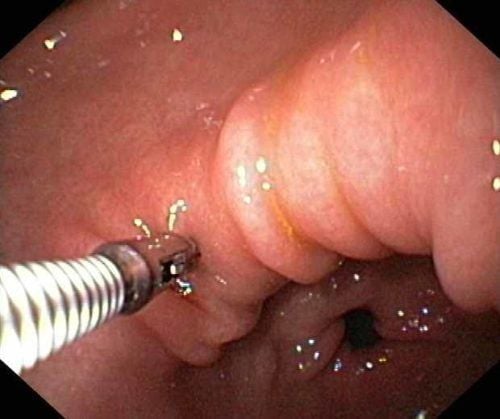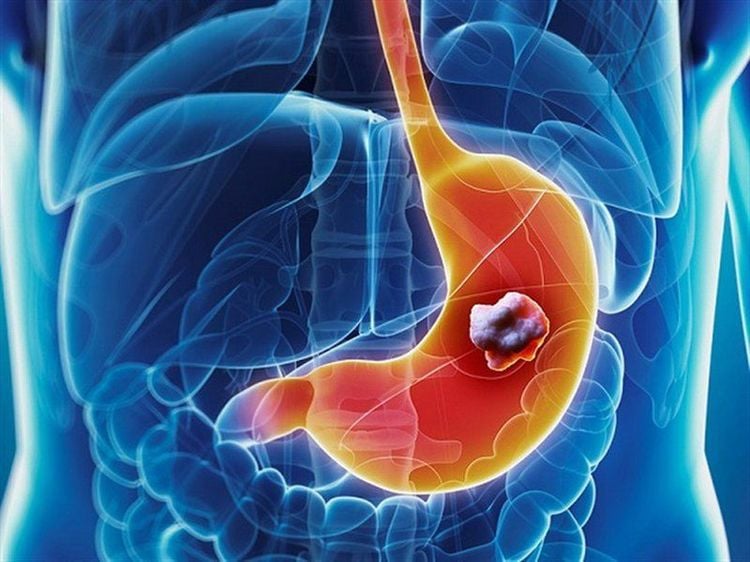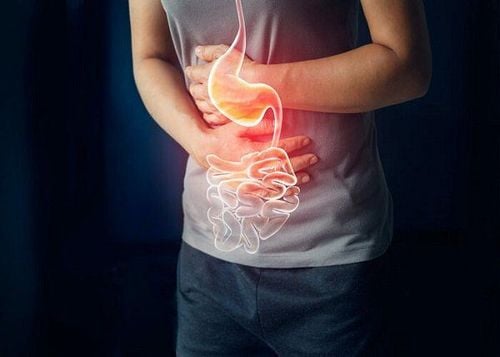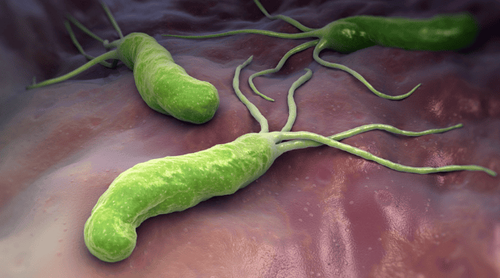This is an automatically translated article.
Gastric biopsy, a technique commonly performed during gastroscopy, is the gold standard for identifying gastric cancer as well as the cause of certain stomach conditions.1. What is a stomach biopsy?
Gastric biopsy is a technique in which the doctor takes one or more tissue samples from the stomach from different locations for pathology (examination under a microscope).
Gastric biopsies are usually done during a gastroscopy. Gastroscopy is a technique in which a long, flexible tube equipped with a camera and light source is passed from the patient's mouth through the pharynx and esophagus down to the stomach and duodenum. Through the endoscopic image transmitted from the camera to the screen, the doctor can observe the gastric mucosa, detect abnormalities as well as determine the location and number of tissue samples to be taken for anatomical examination. .
2. Why is a gastric biopsy necessary?
The doctor may order a stomach biopsy when the patient has the following signs and symptoms:
Upper abdominal (epigastric) pain Nausea, vomiting Loss of appetite Unexplained weight loss Passing black stools Stomach biopsy will help find the cause of the above problems, especially determine the existence of cancer as well as identify Helicobacter pylori infection - the bacteria that causes stomach ulcers.
3. Technique of performing gastric biopsy
Gastric biopsies are often performed during gastroscopy, and these are techniques that can be used on an outpatient basis.

Kỹ thuật thực hiện sinh thiết dạ dày
4. Possible risks during gastric biopsy
Like any other technique, gastric biopsy carries certain risks, although the risk is low, possible complications include:
Bleeding Esophageal Perforation Gastric perforation Duodenal perforation There is also a small percentage of patients who react to drugs with the following manifestations:
Shortness of breath Sweating Low blood pressure Slow heart rate Laryngeal spasm
5. Prepare before performing a gastric biopsy
Patients can consult their doctor about all their questions. The patient also needs to write a written consent to perform a gastric biopsy. Because gastric biopsies are usually performed during gastroscopy, patients should fast for 6 to 12 hours prior to the procedure. At the same time, the patient is only allowed to drink filtered water, not milk, colored drinks, ... The patient needs to inform the doctor about his medical history, as well as all drugs and foods function that the patient is taking, especially anticoagulants, for specific instructions from the doctor. Patients should inform their doctor if they are sensitive or allergic to any medications. Depending on the specific case of the patient, the doctor may have other specific preparation requirements.
6. Care after a gastric biopsy
Patients usually only need to rest for a while after completing the technique to be able to go home (except in the case of using anesthetics, after recovering the patient will be monitored heart rate, blood pressure, breathing rate, etc.) until completely stabilized).
Patients often feel a slight pain in the throat, and at the same time, they may feel fullness and bloating (due to gas during the endoscopy). These unpleasant feelings will quickly go away. The patient can resume eating and drinking after the oropharyngeal reflex has recovered.
Depending on the specific condition of the patient, the doctor may have other specific care instructions.
7. Get the results of gastric biopsy and follow-up treatment
The stomach tissue sample after being taken from the biopsy process will be taken for pathological examination. Gastric biopsy results are usually returned after 1 week. Results will be normal if pathology does not detect:Signs of infection Helicobacter pylori cell damage Signs of cancer

Sinh thiết dạ dày phát hiện dấu hiệu ung thư
Other abnormal signs If the results are abnormal (Helicobacter pylori infection, gastritis, stomach cancer, ...), depending on the specific results, the doctor will explain and advise in detail. for patients. Your doctor may order additional tests, or discuss and agree on the best treatment for you. Patients should follow the instructions and instructions of the doctor, as well as ensure the full and timely follow-up examination.
It is best to choose gastric biopsy at large, reputable medical facilities not only in the general hospital system but also to stand out and be at the forefront in the field of cancer diagnosis and treatment
For detailed advice on gastric biopsy techniques at Vinmec, you can go directly to the Vinmec medical system nationwide or contact to book an online examination HERE.
References: webmd.com and healthline.com
MORE:
When should you get screened for stomach cancer? What's special about endoscopic polypectomy at Vinmec? 4 common complications of peptic ulcer disease













